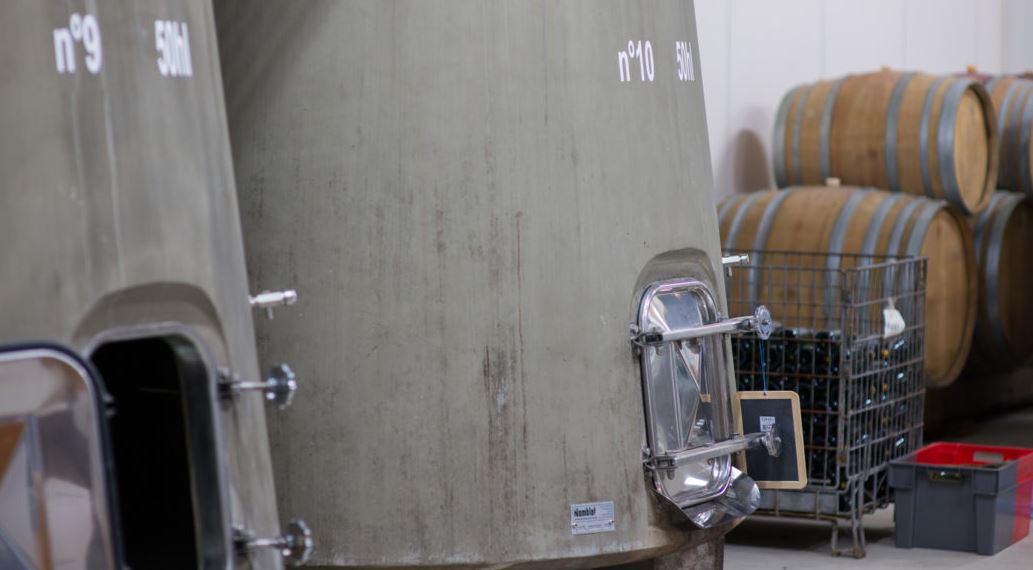Source: Becky Wasserman
DOMAINE DES BERIOLES
Loire, France
Domaine des Bérioles is located just next to the Saint Barthélémy chapel in the small town of Saint Pourçain. Historically, Saint Pourçain was surrounded by vineyards: around 2,000 hectares (4,942 acres) were planted with vines, but today there are a total of just 600 hectares (1,482 acres). Most of these grapes are of conventional viticulture, harvested by machine and brought to the local vigneron cooperative. In the appellation there are just 17 independent vignerons and only 25 hectares are harvested by hand.
In 1989, Odile and Olivier Teissèdre acquired the “Clos des Bérioles,” a vineyard originally planted in 1809. The family domaine thus started out with 3 hectares of vines located on clay-limestone slopes. Olivier loved working in the vines but instead of vinifying and bottling under his own name, he set up a contract with the cooperative.
His son, Jean Teissèdre, decided to take on the family vineyards, studying viticulture and oenology in Mâcon, then seeking out other viticulture and vinification experience in Burgundy, Beaujolais, and Sancerre before returning home to Saint Pourçain. In 2010, the family’s contract with the Saint Pourçain cooperative ran up, and Jean decided not to renew it, instead laying groundwork for the construction of their own cellar and buying an additional 4 hectares of vineyards. The cellar was finished in 2011, the year of the first vinification for their own label.
The domaine’s surface area is now 7 hectares, with both white and red grape varieties. They have 3 hectares of Chardonnay and 1.5 hectares of Tréssallier, a rare white variety (only 30 hectares of this exist in the world and the majority are in Saint Pourçain). Considering Jean’s experience in the Beaujolais and Burgundy, it is unsurprising that the domaine’s red varieties are planted on specific terroirs: Gamay on granite and Pinot Noir on clay and limestone soils.
2014 marked the next major change when Jean’s sister Sophie moved back to Saint Pourçain with her husband Jérôme. They had both already honed their experience and knowledge in the wine business in the Côtes du Rhône, and it made perfect sense to bring them on board. These days, Jean is primarily in charge of vineyard work, Jérôme in charge of vinification, and Sophie manages and fulfills administrative duties and sales.
Since taking on his parents’ vineyards, Jean has focused on improving the domaine’s viticultural practices. After the first step of regularly plowing the soils, he is now slowly converting to organic viticulture, with certification expected for 2019. Moving forward, he also participates in biodynamic training sessions with the Massons and has already incorporated biodynamic infusions of rhubarb, meadowsweet, horsetail, and comfrey into his viticultural methods to reduce the need for copper treatments.
